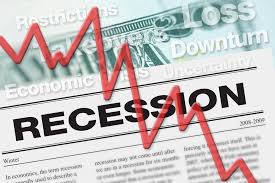The numbers: A survey of consumer confidence fell to a three-month low of 102.9 in February, signaling worries about the future path of the economy as high inflation and rising interest rates depress U.S. growth.
The closely followed index slid 3.1 points from 106 in January, the Conference Board said Tuesday.
Economists polled by The Wall Street Journal had forecast the index to rise to 108.5.
Consumer confidence tends to signal whether the economy is getting better or worse. The index remains well below the levels associated with a healthy economy.
Key details: Another measure that looks at how consumers feel about the economy right now rose to a 10-month high of 152.8, from 151.1 in January.
The consumer-confidence survey puts a lot of weight on Americans’ view of the labor market, and right now, many companies are still hiring and the unemployment rate sits at a 54-year low.
A third confidence gauge that looks ahead six months, however, shrank again to a seven-month low of 67.9, from 76.
A reading below 80 often signals a recession within the next year, the board said. The expectations index has hovered below that level in every month except for one since March 2022, however, and so far the economy is still in expansion mode.
Inflation expectations have relaxed again, with Americans expecting prices to rise 6.3% in the next 12 months, down from 6.7% in the prior month and a high of 7.9% last summer.
Big picture: The economy has slowed in response to higher interest rates orchestrated by the Federal Reserve to try to quench inflation. Higher borrowing costs depress consumer and business spending.
The rate of inflation has slowed to 6.5% from a 40-year peak of 9.1%, but it’s still more than triple the Fed’s 2% goal. The more the Fed has to raise rates and keep them high, the worse the pain will be for the economy.
Looking ahead: “Consumers may be showing early signs of pulling back spending in the face of high prices and rising interest rates,” said Ataman Ozyildirim, senior director of economics at the board.
“Fewer consumers are planning to purchase homes or autos and they also appear to be scaling back plans to buy major appliances. Vacation intentions also declined in February,” he added.














